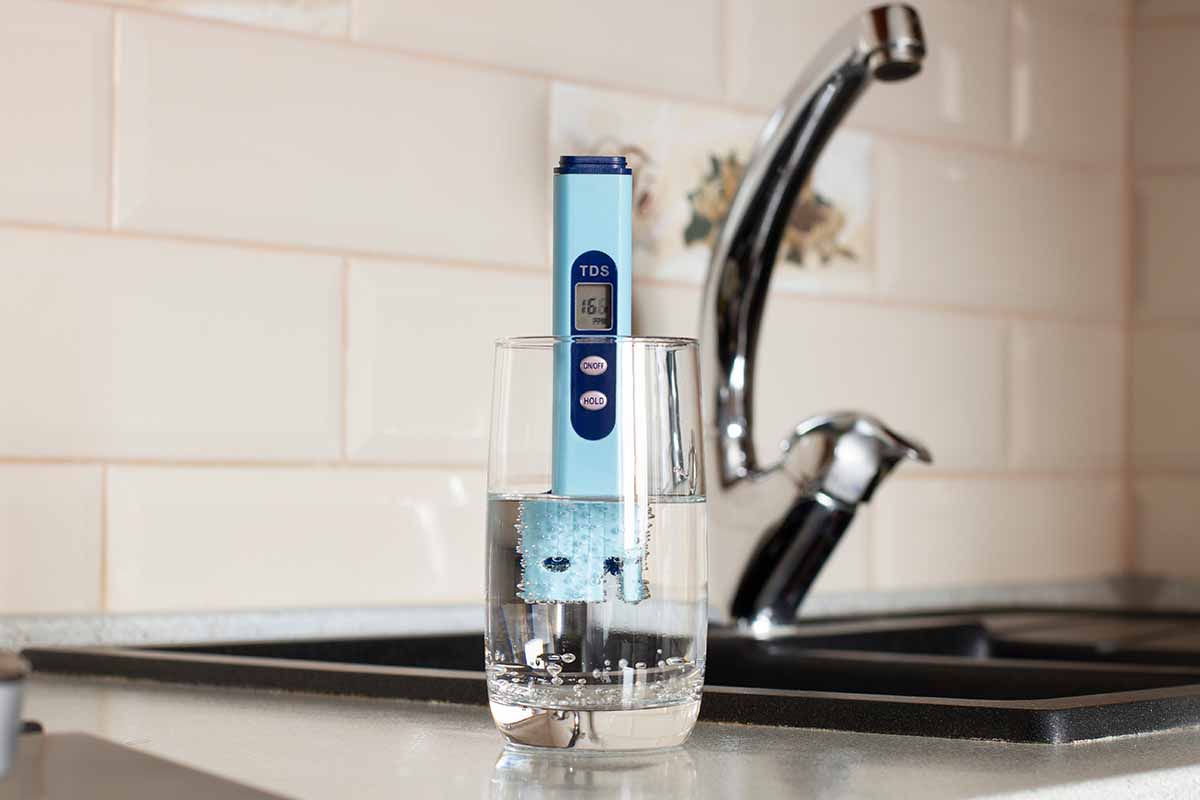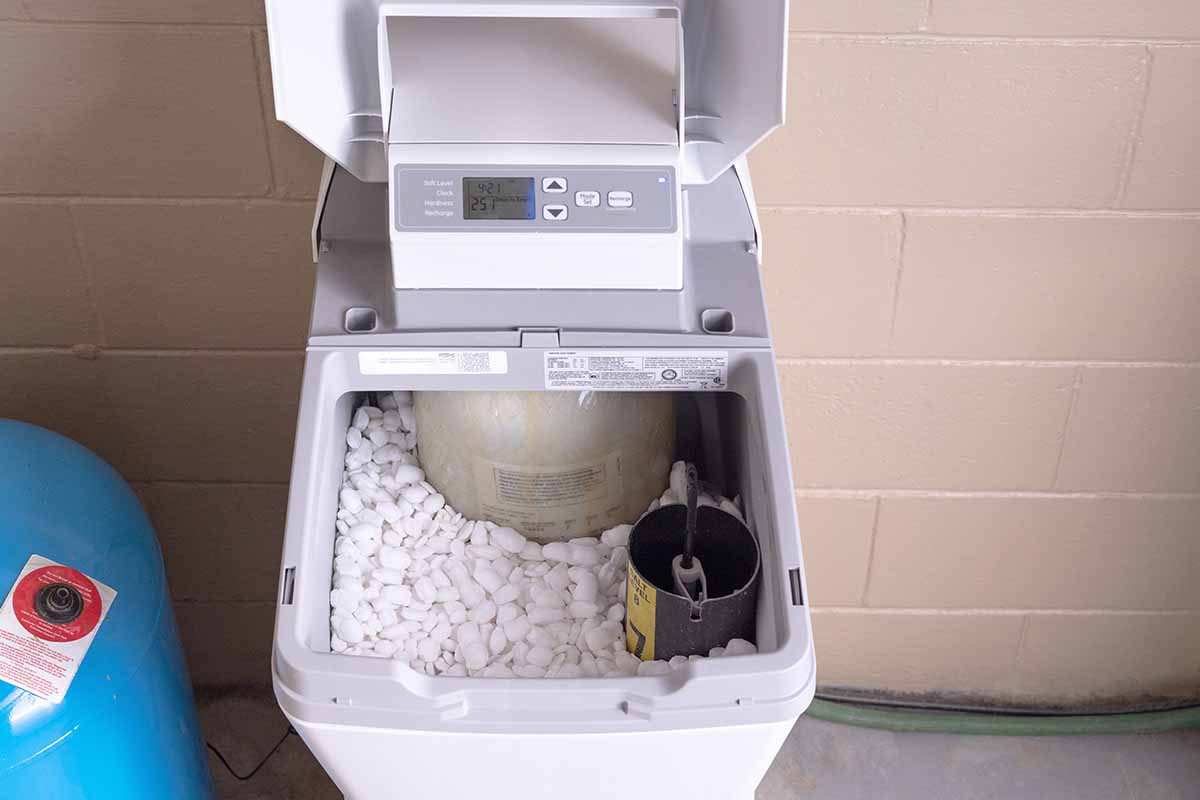
Enjoy Soft Water at All Times
With 24 years of experience in the Phoenix metro area, our plumbers specialize in servicing and installing water softeners to protect your plumbing from mineral buildup and enhance the quality of your home’s water. Soft water not only helps to safeguard your fixtures, glass, and plumbing from hard water build-up but also makes everyday tasks like cleaning and bathing more enjoyable. Soft water has many benefits, from leaving your skin feeling refreshed and nourished, to allowing the use of less soap while still making your dishes sparkle. Our plumbers are dedicated to providing cost-effective, prompt and reliable service, often within 24 hours, ensuring your home benefits from the many advantages of soft water as quickly as possible.
Professional Water Softener Repair Services
Unlike other home appliances, like water heaters, water softeners do not require regular maintenance; instead, they typically only need service when specific issues arise.
Common problems with water softeners include salt bridging, resin bead issues, motor or valve malfunctions, and blockages in the system. Salt bridging occurs when salt forms a hard crust in the brine tank, preventing proper regeneration of the resin beads. Resin beads, which are essential for removing minerals, like calcium, from hard water, can also become less effective over time and may need replacement. Motor or valve malfunctions can disrupt the water softening process, leading to hard water flowing through your home. Blockages or clogging within the water softener system can reduce efficiency and water flow.
Our professional plumbers are equipped to diagnose and repair these common issues and more, ensuring your water softener operates smoothly. With 24 years of experience, we service most makes and models, providing you with the confidence that no matter what type of system you have, we can fix it. We pride ourselves on our quick response times, often getting to your home within 24 hours to address any problems promptly.

New Water Softener Installation Services
We offer new water softener installation services as a hassle-free solution to enhance your home’s water quality and protect your plumbing from mineral build-up. This crusty buildup can clog your pipes and reduce the water pressure for your sinks and showers. Understanding your home’s water hardness level is crucial in selecting the right water softener. Our experts assess your needs to recommend the best options tailored to you, ensuring optimal performance and long-term benefits.
Installing a water softener can significantly improve water quality by reducing mineral buildup in your pipes, fixtures, and appliances, like calcium and magnesium. This not only extends the lifespan of your plumbing system, but also makes cleaning and maintenance easier. With a variety of water softener options available, we help you choose the system that best fits your household’s requirements and budget.
Our professional installation services guarantee that your new water softener is set up correctly for maximum efficiency and performance. We take pride in providing reliable, high-quality service, often completing installations within a short timeframe. Plus, every installation comes with a comprehensive warranty, giving you peace of mind that your investment is protected.
Regular Water Softener Maintenance Tips
To keep your water softener operating at peak efficiency, it’s important to follow some common maintenance practices. These simple tips can help ensure your system continues to provide high-quality soft water and protect your plumbing from hard water build-up.
Shut Off the Water Supply With the Bypass Valve
One of the first maintenance tasks you may need to perform is shutting off the water supply using the bypass valve. This valve allows you to isolate the water softener from your home’s water system, enabling you to perform maintenance or repairs without disrupting your water supply. To activate the bypass valve, locate the valve and turn it to the bypass position. This will redirect water flow away from the softener, allowing you to safely work on the unit. Remember to return the valve to its normal position once you have completed your maintenance tasks to ensure your water softener resumes its operation.
Check the Brine Tank, Salt Level, and Resin Tank
Regularly inspecting the brine tank, salt level, and resin tank is crucial for maintaining your water softener’s performance. Start by checking the brine tank for any salt bridging or crust formation, which can prevent the system from regenerating properly. Break up any hardened salt and ensure the salt level is adequate, typically about half full. It’s also important to use the appropriate type of salt recommended for your unit. Additionally, inspect the resin tank for any signs of wear or resin bead degradation, as these beads are essential for removing hardness minerals from your water.
Drain the Tank
Draining the tank is an important maintenance task that helps remove accumulated sediment and impurities from your water softener, ensuring it continues to function efficiently. To drain the tank, first, use the bypass valve to shut off the water supply to the unit. Next, locate the drain valve at the bottom of the tank and attach a hose to direct the many gallons of water to an appropriate drainage area. Open the valve and allow the tank to empty completely. This process helps flush out any sediment or buildup that can hinder the performance of your water softener. Once the tank is drained, close the valve, remove the hose, and return the bypass valve to its normal position to resume regular operation.
The Regeneration Cycle
Understanding and maintaining the regeneration process of your water softener is key to its effective operation. The regeneration cycle is the process by which the water softener cleans and recharges the resin beads, ensuring they continue to remove hardness minerals from your water. Most modern water softeners automatically initiate this cycle based on your water usage and the hardness level set on the unit.
To ensure the regeneration cycle runs smoothly, regularly check your water softener’s settings and make sure the timer and hardness level are correctly programmed according to your household needs. It’s also a good idea to monitor the cycle periodically to confirm that it’s functioning properly. If you notice any issues, such as incomplete regeneration or hard water during what should be the soft water phase, it may indicate a problem that requires professional attention.
Flush the Resin Bed
Over time, the resin beads in your water softener can become coated with iron, sediment, and other impurities, reducing their ability to soften water. To flush the resin bed, you can use a specialized resin cleaner designed to remove these contaminants.
Begin by following the manufacturer’s instructions for the resin cleaner you are using. Typically, you will add the cleaner to the brine tank, and then manually initiate a regeneration cycle to allow the cleaner to pass through the brine tank and resin bed. This process helps to rejuvenate the resin beads, restoring their capacity to exchange ions and remove hardness minerals from your water.
Contact Empire for All Your Plumbing Needs
For 24 years, our plumbing experts have been your trusted choice for all plumbing needs in Phoenix AZ, offering water softener services from repairs to installations. Hard water can lead to issues like dry skin, water spots, and damage to your plumbing system, but our personalized solutions and transparent pricing can help mitigate these problems and make life easier.
Our expert advice ensures you make an informed decision and get the best system for your needs, and our upfront pricing and flexible financing options guarantee value for your investment. Contact us today to experience the difference of working with true plumbing experts dedicated to customer satisfaction, and discover the personalized solutions that will keep your Phoenix home running smoothly.
